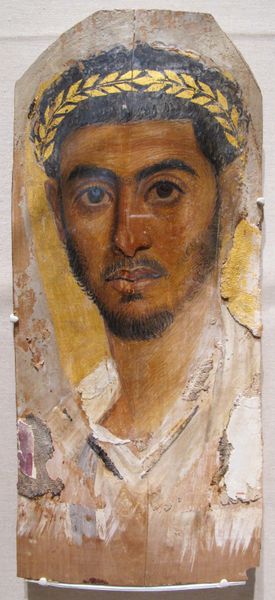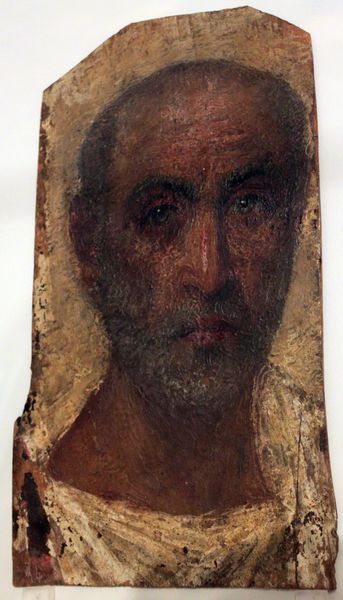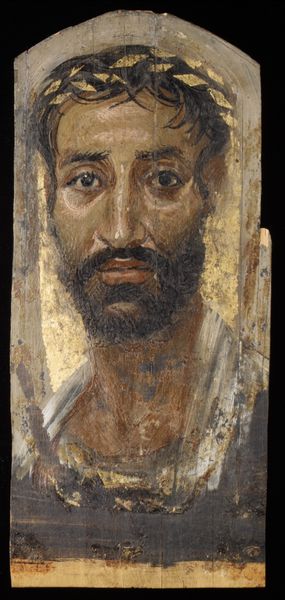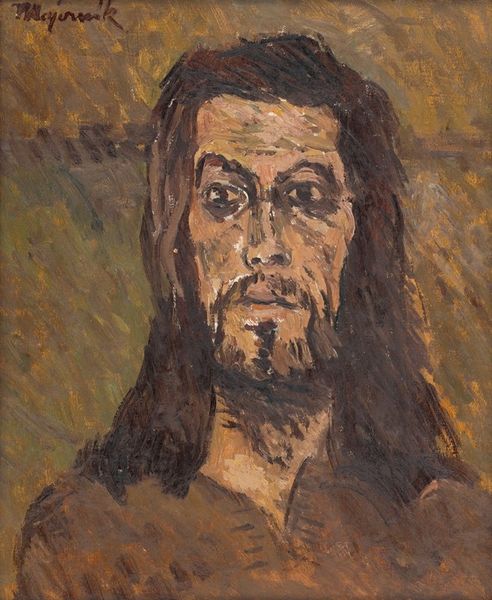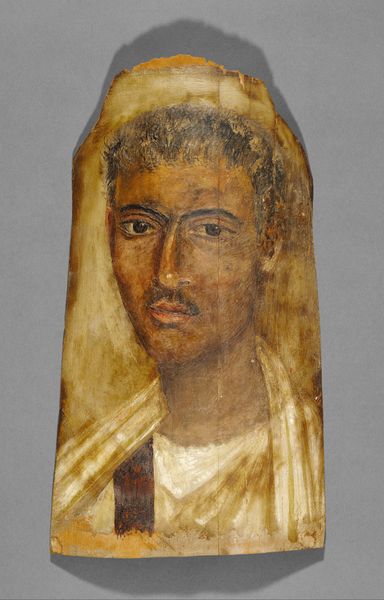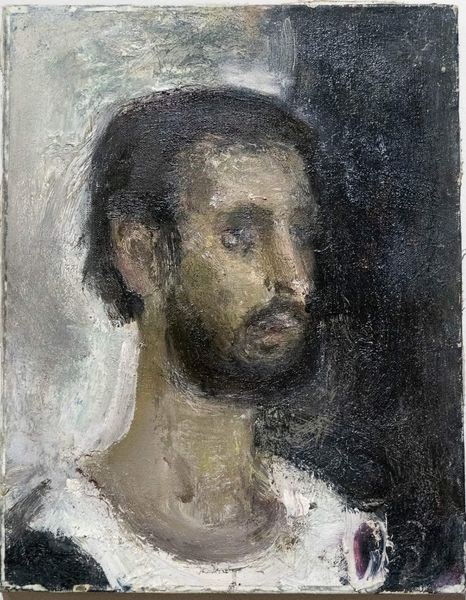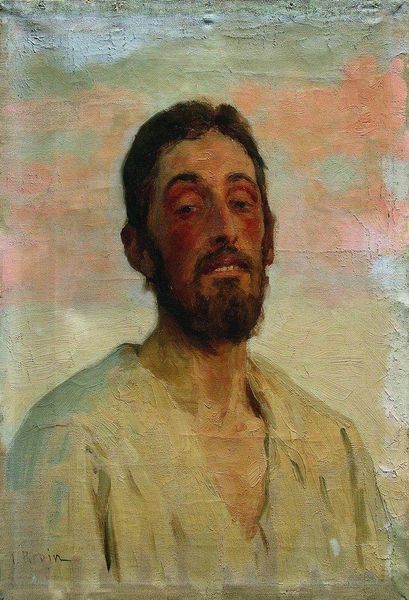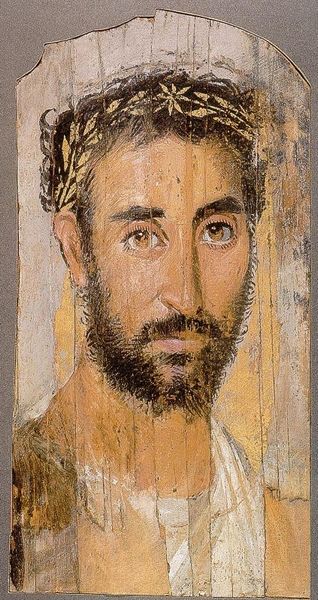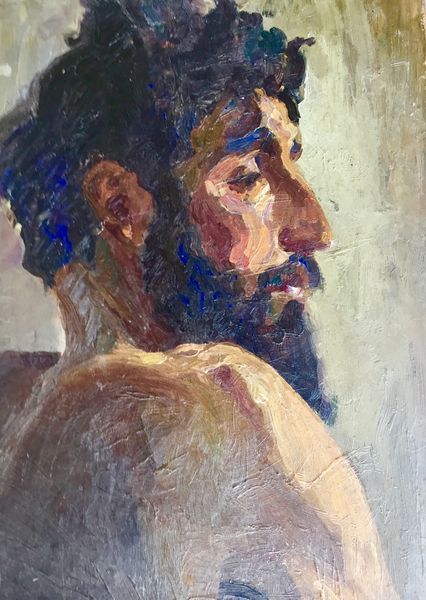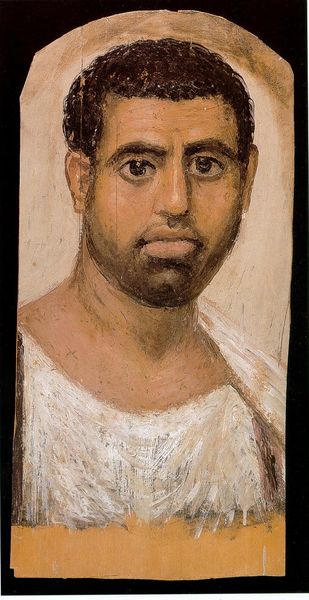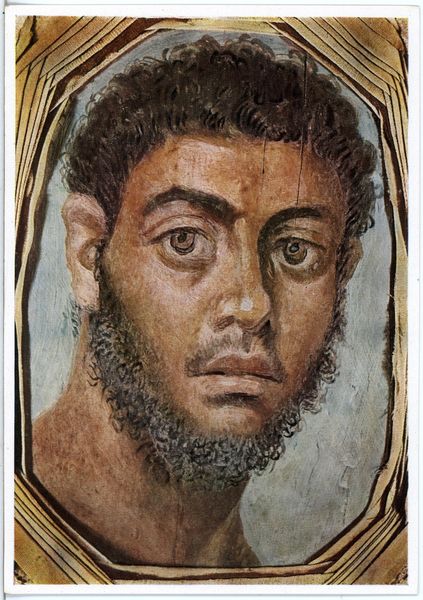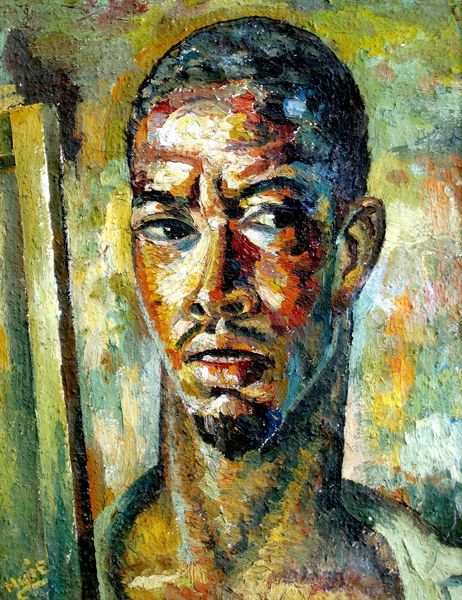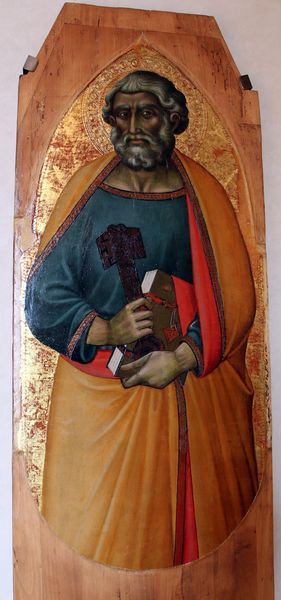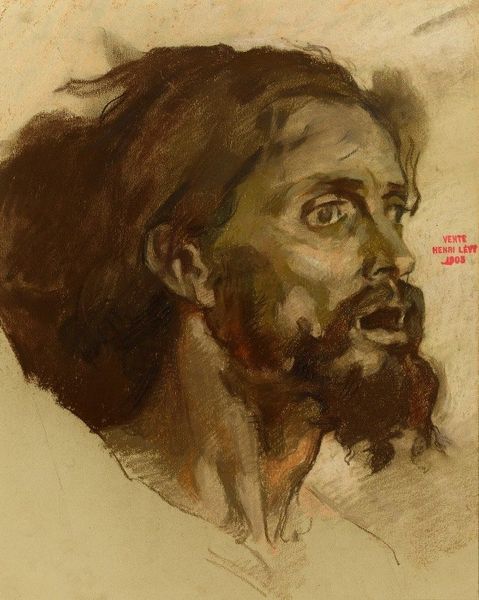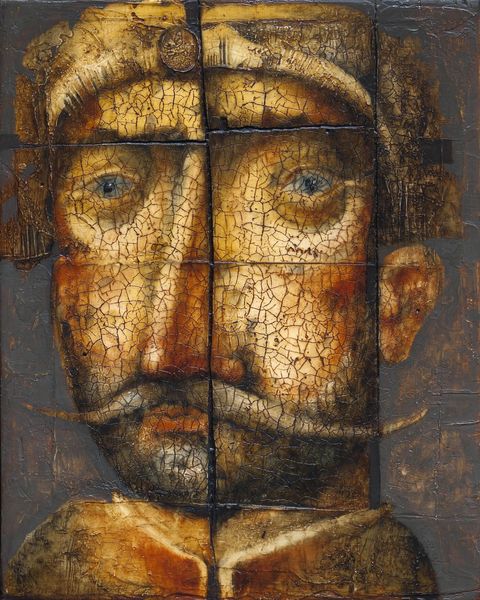
painting, oil-paint
#
portrait
#
painting
#
oil-paint
#
ancient-egyptian-art
#
oil painting
#
ancient-mediterranean
#
realism
Copyright: Public domain
Curator: Staring back at us from across millennia is a portrait currently titled "Portrait D'homme," one of the renowned Fayum portraits now housed in the Louvre. Painted with oils, this panel provides a glimpse into the lives of individuals living in Roman Egypt. Editor: The gaze is intense, almost haunting. He's staring right through me, or perhaps past me, lost in some distant contemplation. And look at the damage! It’s like time itself has taken bites out of his very being, mirroring, perhaps, our own mortality. Curator: Indeed. The use of painted panels like this is fascinating, connecting us to funerary practices melding Egyptian and Roman customs. This portrait, likely attached to a mummy, would have been intended to accompany the deceased into the afterlife, preserving their image. Consider the symbolism: a blending of cultural beliefs manifested visually. Editor: A kind of immortal selfie, you might say. But it’s more than just a record. There’s such an incredible intimacy despite the age and context. I get this feeling that, yeah, he's posing, as you would for any portrait, but also laying himself bare for the ages, an act of radical vulnerability, almost. It kind of throws you. The realism of the rendering, too. The soft modelling of the features, the individual strands of his beard, it pulls you right in. Curator: Precisely. The "realism" you mention underscores the blending of artistic traditions. These portraits are distinct in their naturalistic style, diverging from the idealized representations commonly found in traditional Egyptian art. The Romans valued accurate portrayal, thus integrating it into local funereal customs. What cultural shifts do you think might be driving this form of portraiture at the time? Editor: A society caught between worlds? Clinging to identity and desperately seeking permanence? Maybe the same stuff that fuels us now. Staring at him makes me want to scribble a poem about ghosts in the machine or some tripe about how, we all are going to die. How are supposed to view death these days when faced with an image like that? Curator: That’s precisely where the painting’s enduring resonance lies; It challenges us to contemplate our own understanding of identity, remembrance, and the ever-present march of time. These panels speak volumes about what is gained and what is lost in the vastness of history. Editor: And there's nothing quite as wonderful as history staring right back at you, reminding us that time is both cruel and strangely beautiful, all at once.
Comments
No comments
Be the first to comment and join the conversation on the ultimate creative platform.
